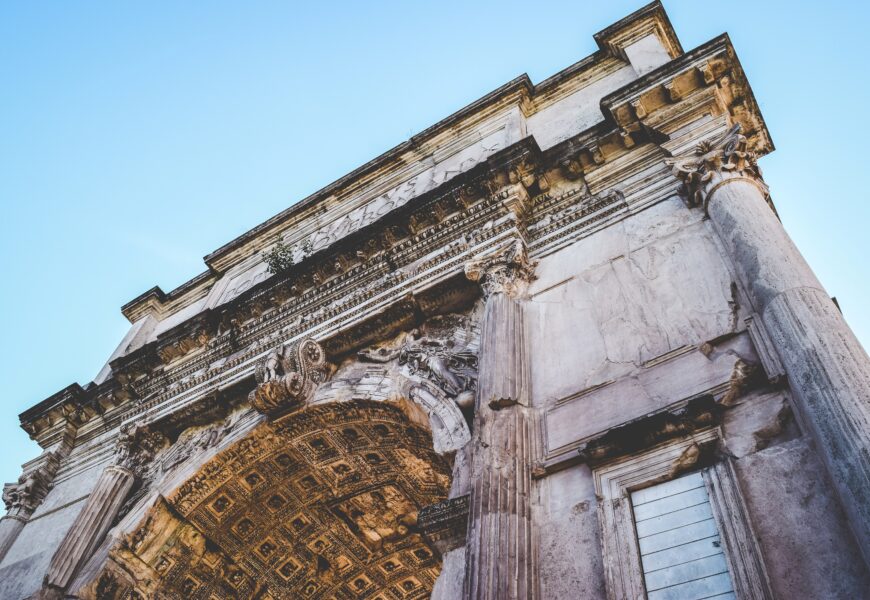By Elgin Tolliver /
That the study of ancient Greece and Rome is among my obsessions prompted a friend of mine to question the relevance of the period. A good argument can be made that as 2021 approaches, we don’t have much in common with the Romans of Cicero’s day, so why go backwards?
But my interest in the classical world is not driven by a search for similarities. In fact, the pleasure derives from stepping into a different world. The goal is for Cicero’s realm to come fully alive in the mind’s eye.
Besides, it gives me something to think about when I’m at work. Logging quality minutes at the local manufacturing conglomerate involves mastering the ins and outs of various technologies, which heightens the risk of an afternoon snooze.
I pondered the gap between aspiration and duty during a recent drive to the conglomerate. My mind went back to the chapter on Lucullus in Plutarch’s Lives.
Lucullus signifies because, at a certain crossroads in his life, true north veered off from what Cicero and Cato deemed appropriate. Yet Lucullus gave himself carte blanche.
Plutarch notes that in his younger days, Lucullus “addicted himself to the study, simply for its own sake, of the liberal arts.” (There was only so much for people to do before the advent of the smartphone.)
Soon enough, though, a wise man was dispatched: “My son, in Rome we have war.”
It’s as likely that Lucullus sought military glory in his own right. He brought off major derring-do in twenty years as a general.
The culminating conflict in Lucullus’s military career was the Third Mithridatic War, fought between Mithridates of Pontus (roughly Turkey) and the Roman Republic. A pattern developed early in the war whereby Lucullus would outmaneuver Mithridates on the battlefield, but Mithridates would slip through his fingers.
When Lucullus defeated Mithridates at the Battle of Cabira, the Pontic commander retreated and Lucullus hung back to address a financial hardship that Roman bankers were inflicting on people of the region. The bankers were such princes of equitable commerce that they were jake with forcing people to sell their children into slavery to offset filthy interest rates. (Sounds roughly familiar.)
Lucullus used his broad powers as a general and a statesman to reset the balance sheet for the preyed upon citizenry. The action resulted in economic recovery for the citizenry, but the bankers were bitter.
The bad blood between Lucullus and the bankers festered as Mithridates continued to excel in the art of getting away. The evasive tactics extended the war and allowed the bankers to bad-mouth Lucullus back in Rome. Over time, the propaganda eroded Lucullus’s support. His position was further hindered by the low morale of his troops. They’d endured consecutive winters away from home on a conflict that wasn’t paying off. Plutarch puts in that Lucullus’s chief liability was a haughty response to dissent.
I will leave it to experts on ancient Roman warfare to assess the extent to which Lucullus fell short. As a matter of record, he was replaced by Pompey. My impression after reading Plutarch’s account is that, while Lucullus failed to grab Mithridates, he outfoxed Mithridates at every turn. This weakened the Pontic prince so that Pompey could knock him out.
Whatever the case, we’ve arrived at the moment when Lucullus decided on a different way to live. The dude had apparently passed the helmet while touring royal palaces—maybe he should have emptied some of it out for his troops—because he ventured back to Rome with a chariot-full of goodies. The assumption was that Lucullus would return to the Senate, thereby tending to his reputation in the manner of Cicero, but Plutarch reports Lucullus spent the rest of his days eating and drinking, feasting and reveling, in addition to commissioning sumptuous buildings, porticos and baths, which he collected at vast expense.
Plutarch writes that Lucullus’s library “deserves praise and record, for he collected very many choice manuscripts; and the use they were put to was even more magnificent than the purchase, the library being always open, and the walks and reading rooms about it free to all Greeks, whose delight it was to leave their occupations and hasten thither as to the habitation of the Muses, there walking about, and diverting one another.” Plutarch adds that Lucullus “was fond of all sorts of philosophy, and was well read and expert in them all.”
Does any of this suggest the man was down in the dumps? Selected historians have claimed as much. In his generally worthwhile Rubicon: The Last Years of the Roman Republic, Tom Holland calls Lucullus’s retirement “the most flamboyant sulk in history,” and states that “having been bested, of holding only second place, was a burning agony.”
Perhaps Holland senses something between the lines or assigns more value to the opinions of those who disapproved of Lucullus’s lifestyle. Or Holland might be right that given Lucullus’s propensity for haughtiness, he chafed at Pompey’s opportunism and the financial sector’s blind greed. (It seems clear they were shitheads.)
It’s worth noting as well that Plutarch was intent upon drawing comparisons to famous Greeks—he paired Lucullus with Cimon—and prone to shading the picture in a positive vein.
My take is that Lucullus cycled in and out of being modified torched, but mostly took the rough with the smooth. He possessed the resources—mental and otherwise—to get on with his business.
Plutarch says, “It is plain from the anecdotes on record of him that Lucullus was not only pleased with, but even gloried in his way of living.”
We know that Lucullus was a devotee of the liberal arts in advance of being counseled by the wise man. His all-consuming responsibilities on the battlefield largely forced him to set those interests aside, but considering the gusto with which he resumed the activities after the war, it’s likely he followed his bliss.
You can’t dismiss that at a critical juncture as a statesman, Lucullus assisted the unfortunate when the easier path involved doing the powerful financial lobby’s bidding. In retirement, he might have stood in the sunlight of his library and reflected on the people he helped.
On that recent drive to the conglomerate, my conclusion was that the Greeks would not have hastened thither if Lucullus grew tiresome on arrival. People don’t sign up for a royal bummer unless they’re getting paid. The conglomerate offers salary and benefits to keep you awake between eight and five. You pour coffee and look at the spreadsheet. Hand upon the mouse. Mind in ancient Rome.














